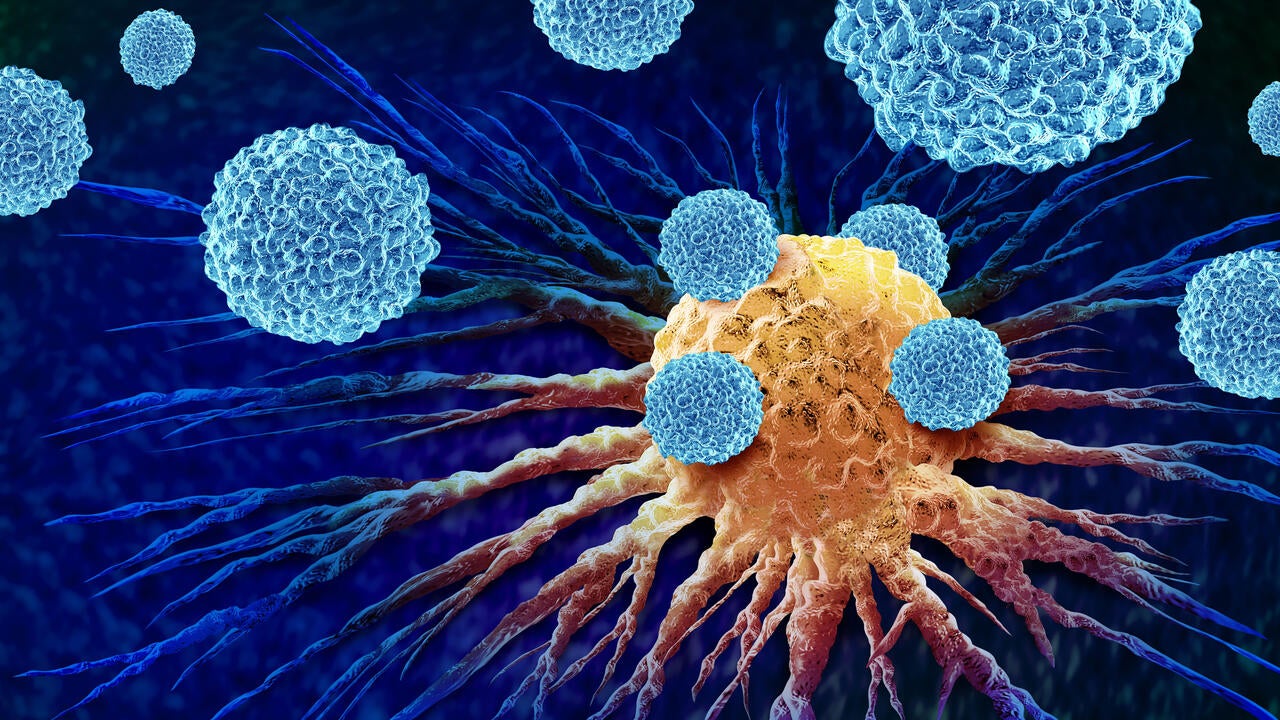
Developing personalized cancer vaccines
Deep learning technology is making immunotherapy treatment more accurate and affordable

Deep learning technology is making immunotherapy treatment more accurate and affordable
By Melodie Roschman Faculty of Mathematics
Dr. Ming Li
Professor, Faculty of Mathematics
> Cheriton School of Computer Science
> Canada Research Chair in Bioinformatics
> Founder, Bioinformatics Solutions Inc.
Cancer is the leading cause of death in Canada. According to the Canadian Cancer Society, an estimated 230,000 people are diagnosed with cancer every year.
Dr. Ming Li, a Canada Research Chair in Bioinformatics and University Professor in the David R. Cheriton School of Computer Science, is using deep learning technology to make personalized cancer vaccines accessible to everyone. Li initially began doing cancer research when his wife, Jessie W. H. Zou, was diagnosed with breast cancer. Though she died in 2010, her legacy continues in Li’s research.
His team’s software, DeepImmu, replaces a lot of lab work with AI, and takes the cutting-edge treatment from a million-dollar specialty treatment to a much more affordable process that the average patient can access.
Traditional cancer treatment has consisted of three pillars: surgery, chemotherapy and radiation. These treatments, however, are not always effective, and they include debilitating side effects that can significantly reduce the patient’s quality of life.
In the last thirty years, researchers have been developing a fourth pillar of cancer treatment: immunotherapy. “This is essentially using your own immune system to fight the cancer,” Li says.
Recent research has revealed that when a cell mutates into a cancer cell, it brings some mutated protein fragments to the cell surface. These distinctive markers are called “neoantigens.” In a healthy person’s immune system, T-cells routinely recognize these neoantigens and destroy the rogue cells before they can spread further.
“We get mutated cells every day,” Li explains, “but usually our T-cells are good at noticing them and killing them. For people with cancer, however, this mechanism does not always work.”
In the last few years, scientists have developed personalized cancer vaccines that re-train a patient’s T-cells to target their cancer. While some immunotherapy drugs have been around since the 1990s, the new treatment involves specifically identifying the neoantigens in an individual patient’s tumour, then crafting a corresponding personalized vaccine.
The problem with this exciting new treatment? The process of discovering and validating these neoantigens is prohibitively expensive, slow, and inaccurate.
“Every person’s cancer is different,” Li says. “You have to do a lot of time-consuming, labor-intensive experiments that cost millions of dollars.”
To develop a personalized cancer vaccine, scientists must biopsy a tumor and then analyze its RNA sequences and mutations. Then they must identify the handful of peptides that will work for a vaccine. “There are maybe 10 peptides out of a few thousands” that will work in a vaccine, Li says. Searching for this needle in a medical haystack can take three months and over a million dollars, a luxury many cancer patients don’t have. And – even after all that money and time spent – the results are not always accurate.
Li’s team has developed a process using deep learning technology and mass spectrometry to streamline and automate vaccine development. Their method, using their programs DeepImmu and DeepNovo, can sequence the peptides in a tumour sample far more accurately than previous technologies and then identify the peptides most likely to work with high success rates.
“Computer science and AI makes this inexpensive and fast,” Li says. DeepImmu and DeepNovo’s results can then be used to design a personalized cancer vaccine that can be produced by a lab and given to a patient.
Li’s deep learning-enabled vaccines are dramatically more affordable, roughly $10,000, compared to more than a million dollars. “One purpose of this method is to make sure that this treatment is actually affordable for people,” Li says.
The cancer vaccines have proven to be both affordable and effective. In a 2022 clinical trial by Moderna, patients were given the existing immunotherapy drug Keytruda, or a combination of Keytruda and a personalized cancer vaccine developed using neoantigens. The personalized cancer vaccines decreased relapse and death risk by 44 per cent compared to treatment with Keytruda alone.
“In my wife’s day, chemotherapy and similar treatments didn’t work for late-stage cancers,” Li says. “With personalized immunotherapy, we will be able to help millions of people.”

Read more
Opinion: Prioritizing purpose and values over moving fast and breaking things when it comes to new technology

Read more
A generation-defining mission will develop satellite technology to help plan our responses to climate change

Read more
A novel technological platform demystifies medical information with help from artificial intelligence
The University of Waterloo acknowledges that much of our work takes place on the traditional territory of the Neutral, Anishinaabeg, and Haudenosaunee peoples. Our main campus is situated on the Haldimand Tract, the land granted to the Six Nations that includes six miles on each side of the Grand River. Our active work toward reconciliation takes place across our campuses through research, learning, teaching, and community building, and is co-ordinated within the Office of Indigenous Relations.